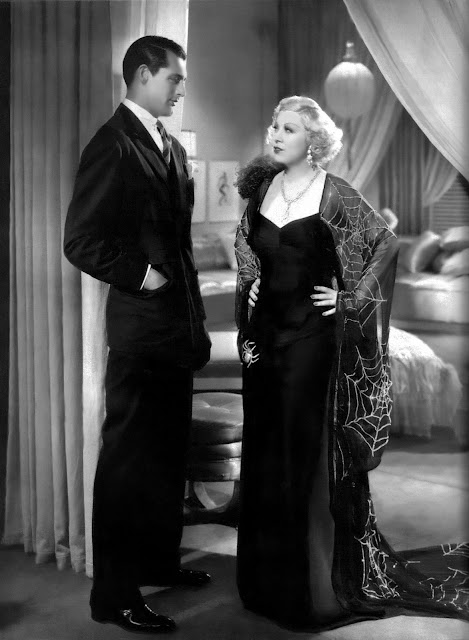I'm No Angel - 6th October, 1933.
Wedding Present - 9th October, 1936.
The Last Outpost - 11th October, 1935.
The Awful Truth - 21st October, 1937.
Hot Saturday - 28th October, 1932.
It all started on Instagram in 2020, about Me and Archie...But here it is definitely more about him!!

I'm No Angel - 6th October, 1933.
Wedding Present - 9th October, 1936.
The Last Outpost - 11th October, 1935.
The Awful Truth - 21st October, 1937.
Hot Saturday - 28th October, 1932.
"The casting of Cary Grant... was again another brilliant piece of dramatic awareness."
 |
| With Mae West. |
I'm No Angel - Review is taken from 'The Films of Cary Grant' by Donald Deschner (1973):
"Ingenious casting had much to do with the success of I'm No Angel. Although her control over her vehicles at Paramount was almost absolute, unlike Chaplin in a similarly favored position, Mae West did not depend on a weak supporting cast to magnify her own personality or call attention to her humor. A strong cast, each one capable and playing his or her role with uncommon passion, lent a credibility to the film, a quality of balance and proportion which only the finest motion pictures attain.
The casting of Cary Grant in the role of the man who finally wins Tira's love was again another brilliant piece of dramatic awareness. Cary as Jack Clayton has none of the characteristics about him that had previously attracted Tira to men. When she meets Nat Pendleton (playing the trapeze artist) on her way to the hotel at the very start of the picture, she feels his muscles, and comments on them. She makes a similar overt gesture with Davidson (playing the Chump) while the two are dancing in her hotel room. But with Clayton all such pretension is dropped. Supposedly not interested just in his money, as she had been with Kirk Lawrence, seemingly in love, she feels his muscles at the end of the picture just before the fade. But in 1933 Cary Grant was narrow of line and thin of physique, not at all the Nat Pendleton image. Tira, a lion tamer, is unaccountably drawn to him, but there is something slightly incredible about their union, incredible enough for the viewer to have the same impression as one has at the conclusion of She Done Him Wrong, Tira cannot stay with him forever; she is insatiable and immortal. From this very subtle and almost unconscious impression, the viewer comes away with that same sense of awe before magnitude, talent and vibrance, which Chaplin managed only by weak casting as a crutch.
No scene in I'm No Angel is extraneous. It is interesting, compelling, and enjoyable throughout. Some scenes are played with rare distinction, as that of Cary Grant's initial visit to Tira's apartment, when she decides to let Kent Taylor go, but wants Cary instead. The camera takes a three-quarters shot as this conversation straggles to its conclusion, with both their minds on something other than what's being said. Cary has placed a small photograph of Mae in his coat pocket, and with his hands plunged nervously into his trouser pockets, the suit coat jutting out towards Mae, their bodies swaying ever closer together as they talk, Mae mumbling, "You'll hear from me," much more is implied that could ever be shown."
- John Tuska, Views and Reviews
 |
| New Artwork by Rebekah Hawley at Studio36 - Number 12 - I'm No Angel (Lobby Card Style) |
Part Of
For more, see also:
"You were wonderful tonight."
Today, back in 1933, saw the release of Cary Grant's 12th full length feature film and his 2nd with Mae West, I'm No Angel.